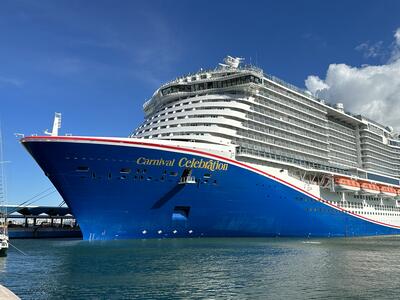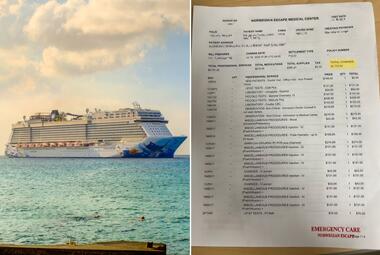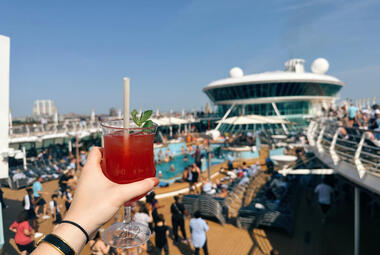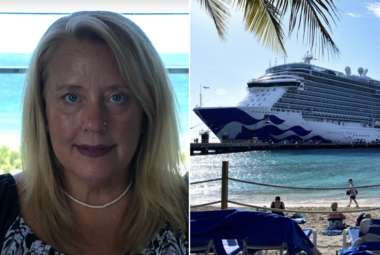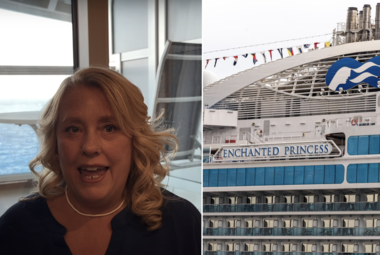Once gratuities and add-ons like drink packages and shore excursions have been added to your cruise fare, it’ll be hundreds of dollars more than the advertised price. Thankfully, cruise lines have begun including port fees to give guests a clearer indication of the total cost of their cruise upfront.
Though cruise fares might seem a little higher than one year ago when scrolling on the line’s website, the transparency helps potential sailors gauge the full cost of the cruise from the start, rather than later in the booking process.
Here’s a guide to help you understand everything you need to know about port fees.
What are port fees?
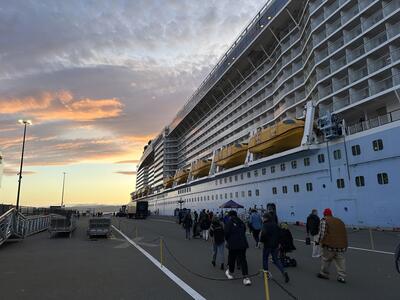
Port fees are fees charged by the ports of call to the cruise line (ships don't get to dock for free!). In turn, they pass these fees on to the passengers.
It doesn't matter if you're staying in an interior room or a two-bedroom suite, everyone will pay the exact same amount to the cruise line to cover these fees. Unfortunately, there's no way to get around paying them, either. Unlike gratuities that can be adjusted at guest services, all port fees are paid in full by the time of final payment.
Usually, the port fees are a summation of a few different fees, including the pilot fee, per-passenger fee (head tax), and docking fee.

The pilot fee covers the associated costs of the local harbor pilot brought onboard to help guide the ship into port, while the head tax is charged to offset the cost of passengers using the local infrastructure; the docking fee is simply the charge that local authorities bill the cruise line for the right to dock in their port and help to pay for the services required for said visit.
The above, however, is not an exclusive list; port fees may include more things, such as wharfage fees, inspection fees, air taxes, immigration and naturalization fees, Internal Revenue Service fees, and more.
Other than the flat-rate head tax, most fees are charged based on a fluctuating scale determined by gross tonnage and the total number of passengers.
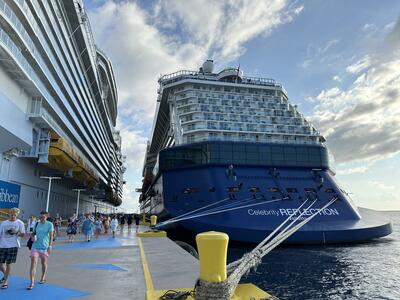
Take the CDC inspection fees for 2023. According to the information posted online, cruise ships between 60,001 and 120,000 gross tons will be charged $11,960 per inspection, while "super mega ships" (those over 140,001 gross tons) will be charged $23,920.
Effective July 1, 2024, all cruise lines include port fees in their fares
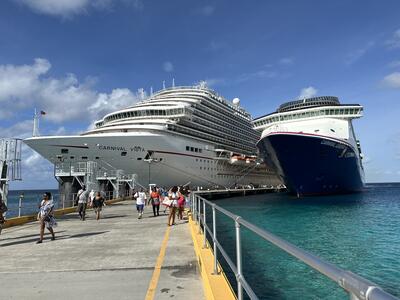
The change is a result of California's new consumer protection law, which prevents companies from advertising a price lower than what a consumer will ultimately have to pay.
Instead of having different pricing models for California versus the rest of the country, cruise lines decided to make the change nationwide.
"Treating California differently than the rest of the United States could have created confusion and introduced unnecessary complexity," a Royal Caribbean spokesperson said in an email to travel agents.
Read more: Why cruise prices are about to get a little clearer
How are port fees different from cruise ship tips?

Port fees aren’t synonymous with gratuities. Now that port fees are included in the cruise fare, they aren’t considered a “hidden” fee. Conversely, gratuities can be added when booking or charged to your onboard account during your cruise, whereas port fees must be paid in full by final payment since they're part of the overall fare.
Gratuites range from $16-$25 per person, per day. The total cost, however, depends on which line you’re sailing with, your stateroom category, and the length of the cruise.
Some cruise lines include gratuities, such as Virgin Voyages. Most of the time, however, they’re an extra charge—unless sailing with a luxury line.

The summation of the gratuities paid by all passengers is divided among the crew members who work to make your vacation memorable, including your cabin steward, the dining and culinary services staff, guest services team, and more.
Read more: Tipping on a cruise ship: Guide and what to do
Do all ports charge the same amount?
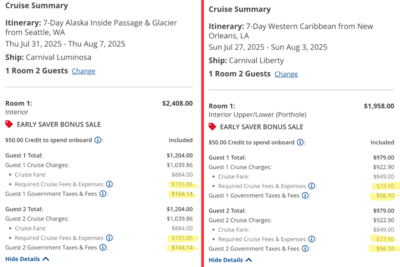
Nope. In fact, some charge significantly more than others! Let's look at two Carnival cruises departing in July 2025.
The 7-night Alaskan cruise onboard Carnival Luminosa sailing round trip from Seattle, Washington, charges a whooping $320 per guest in taxes and fees. In comparison, the 7-night Western Caribbean cruise from New Orleans has fees that are about half the price, or $130 per person.
Higher port fees are typical for Alaskan sailings, and you can expect to pay anywhere from $150 to $350 extra in port fees alone!
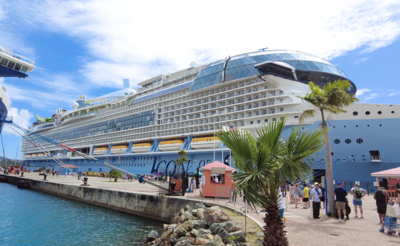
Expect the port fees to vary based on where the ship departs from and where it visits.
A 7-night Caribbean cruise visiting the exact same three ports might have different port fees if one sails from Tampa and the other from Galveston. The amount is also determined by how many passengers are on your particular sailing.
Do port fees ever get refunded?
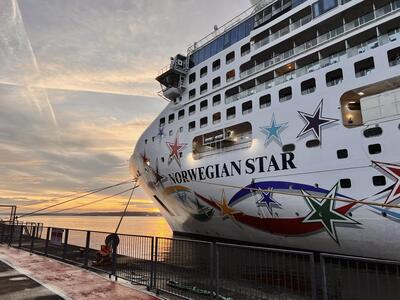
Since port fees are dependent on the ship docking at said port, if, for some unfortunate reason, the ship has to skip the port due to rough seas or civil unrest in the area, you'll most likely get a credit added to your onboard account that's equal to your share of the specific port fees.
If only one port gets canceled, you will not receive a refund of all the port fees you paid!
Let's say you're going on a Western Caribbean cruise to Grand Cayman, Montego Bay, and Cozumel. Due to choppy waters, however, you're unable to visit Grand Cayman since you'd be required to tender. In this case, you'll only get onboard credit for the Grand Cayman port fees, not Montego Bay, Cozumel, and Grand Cayman.
Read more: 25 Tips to deal with bad weather on a cruise
If I'm sailing solo, will I be charged the port fees for two since room rates are based on double occupancy?
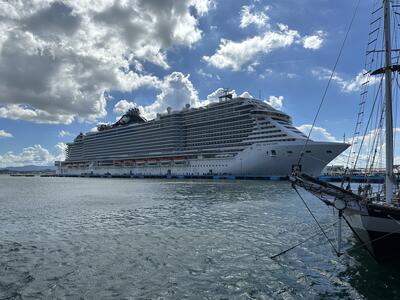
No, if you're sailing alone, you will only be charged the port fees and other associated taxes for one passenger.
While it's true that your actual fare will be close to what it would cost two people to sail (unless you find a solo cabin), you will not be responsible for any secondary port fees, taxes, or gratuities!
Let's assume you're looking at booking a 4-night cruise to The Bahamas, with the port fees totaling around $145 per person. Rather than paying $290, solo passengers (i.e., those booked in cabins by themselves) would only have to pay $145.
Read more: Why You Should Book Cruise Ship Cabins for Two Even As a Solo Traveler
As annoying as the extra cost may be, port fees are just a part of cruising
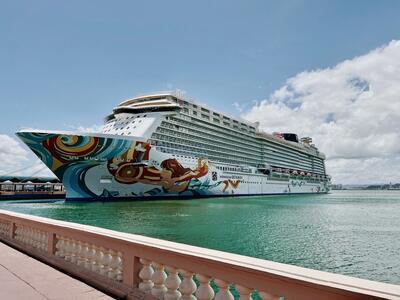
Thankfully, cruise lines have made understanding port fees a little easier, now that they're included in the base fare of a cruise.
Of course, there are other things that you will need to budget for, too. These include cruise add-ons such as drink and internet packages, shore excursions, specialty dining, and more.
Even after port fees, a $600 cruise fare could easily end up being close to $1,200 per person or more depending on what you decide to splurge on.


